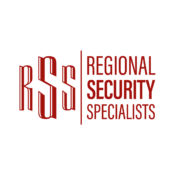
Challenges and Concerns
Organising an event involves countless moving parts, but none is more important than security. From intimate corporate gatherings to large-scale festivals, proper security planning ensures attendees remain safe while enjoying the experience you’ve created. At Regional Security Specialists, we’ve secured hundreds of events across the UK, and we’re sharing our expertise to help you create a comprehensive event security strategy.
Understanding Event Security Risk Assessment
Every effective security plan begins with a thorough risk assessment:
Venue Analysis
- Access and exit points evaluation
- Perimeter security considerations
- Crowd flow pinch points identification
- Emergency response accessibility
Attendee Profile Assessment
- Expected demographics and numbers
- Historical behaviour patterns at similar events
- VIP security requirements
- Special needs considerations
Threat Evaluation
- Current threat level implications
- Specific risks based on event type
- Weather and environmental factors
- Health and safety hazards
Creating Your Event Security Team Structure
The human element remains essential to event security success:
Security Staffing Ratios
For most events, we recommend:
- 1 security staff per 100 attendees for standard events
- 1 per 75 attendees for events serving alcohol
- 1 per 50 attendees for high-energy events like concerts
- Additional specialised security for VIPs or high-risk areas
Security Team Roles
Clearly defined roles improve security effectiveness:
- Entrance screening personnel
- Roaming security officers
- Fixed position security
- Response team members
- Command centre operators
- VIP security specialists
Communication Protocols
Establish clear communication systems:
- Radio protocols and channels
- Command structure and escalation procedures
- Integration with venue staff and event organisers
- Emergency services liaison procedures
Essential Event Security Equipment and Technology
Modern event security leverages technology for enhanced protection:
Access Control Systems
- RFID wristbands or badges
- Biometric verification where appropriate
- Anti-counterfeiting measures
- Fast-track options for VIPs
Surveillance Systems
- Temporary CCTV deployment strategies
- Mobile monitoring stations
- Drone surveillance for large outdoor events
- Real-time video analytics
Screening Equipment
- Metal detectors (walk-through and handheld)
- Bag searching stations
- Explosive detection technology
- Contraband identification tools
Crowd Management Strategies
Effective crowd management prevents many security incidents before they occur:
Queue Management
- Entrance design to prevent crushing
- Clear signage and information
- Entertainment for waiting attendees
- Weather protection considerations
Crowd Flow Design
- One-way systems where beneficial
- Preventing bottlenecks at key areas
- Stage barrier configurations
- Viewing area capacity management
Behavioural Intervention
- Early intervention techniques
- De-escalation protocols
- Ejection procedures and documentation
- Substance abuse management
Emergency Response Planning
Despite preventative measures, being prepared for emergencies remains critical:
Medical Emergency Protocols
- First aid station locations and staffing
- Medical team integration
- Ambulance access routes
- Patient evacuation procedures
Evacuation Planning
- Multiple scenario planning
- Staff roles during evacuation
- Meeting points and headcount procedures
- Announcer scripts and communication plans
Major Incident Response
- Lockdown procedures
- Active threat response
- Law enforcement coordination
- Media and communication management
Post-Event Security Analysis
Learning from each event improves future security operations:
Incident Documentation
- Reporting templates and requirements
- Evidence preservation protocols
- Witness statement collection
- Legal compliance considerations
Security Performance Review
- Staff performance evaluation
- Equipment effectiveness assessment
- Response time analysis
- Improvement recommendations
Working With Professional Event Security Services
Partnering with experienced security professionals like Regional Security Specialists provides:
- Regulatory compliance expertise
- Trained and licensed security personnel
- Access to specialised equipment
- Comprehensive insurance coverage
- Proven security methodologies
Planning Your Event Security
Every successful event requires a security plan proportionate to its specific risks. Contact our event security specialists at 0208 364 1000 to discuss your upcoming event’s security requirements or to request our comprehensive event security planning template.
